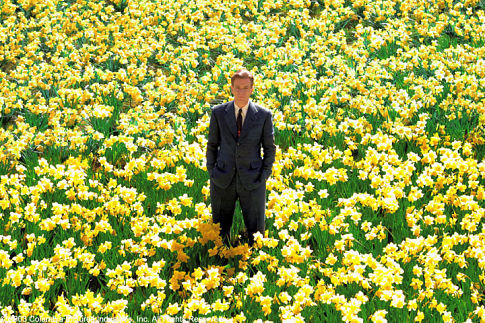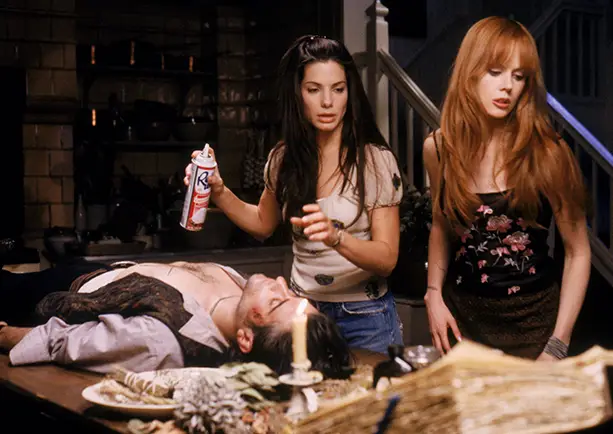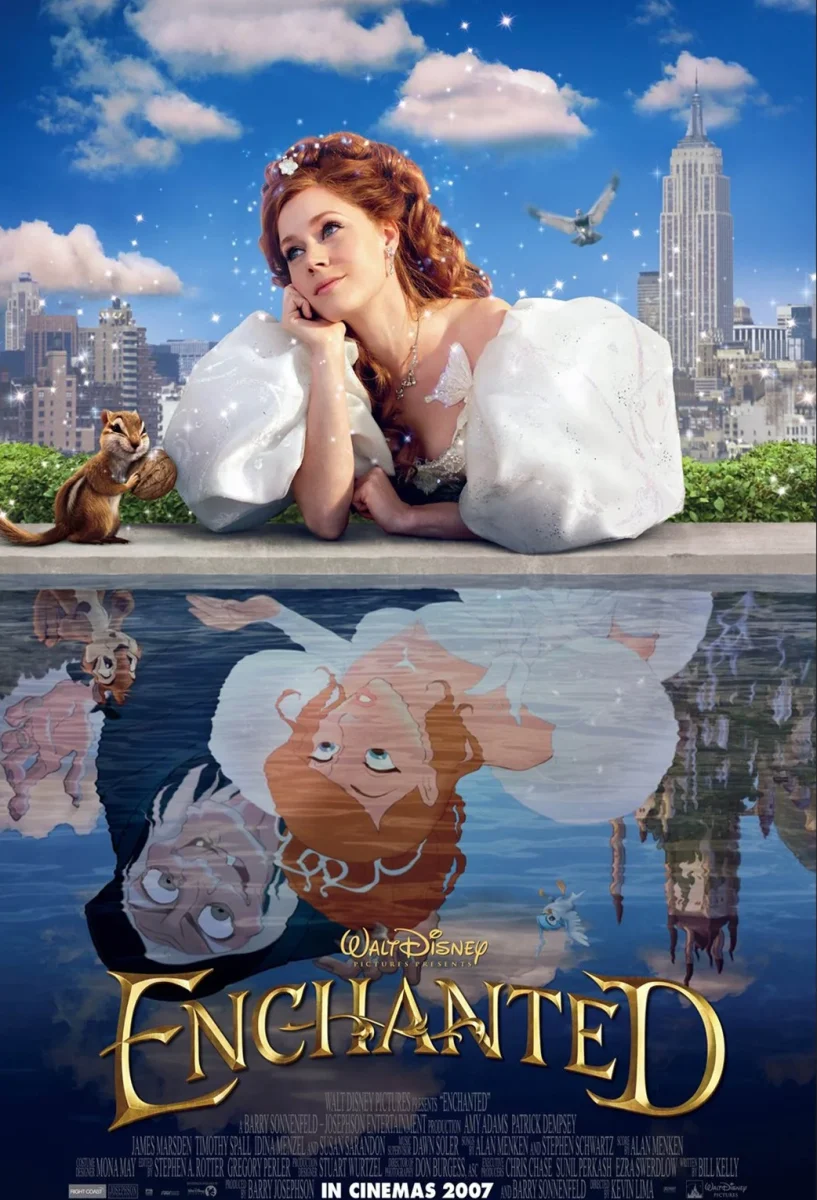
Some stories feel like they’ve always existed–like they’ve been passed from one generation to the next, always changing slightly in the telling. Tim Burton’s “Big Fish” (2003) is one of those stories. It’s the kind of film that feels less like a traditional movie and more like a whispered legend, something you’d hear on a warm summer night when the stars are out and the air is thick with memory.
I first watched “Big Fish” when I was far too young to understand it. I thought it was a story about giants and witches and daring escapes. And it is about those things–but watching it again, older now, it hit me as a story about the slippery nature of memory, the way grief lingers and the complicated relationship so many of us have with our parents. There’s something about how this film unspools itself–nonlinear and deeply whimsical–that makes it feel like it’s being told to you by someone who can’t quite separate truth from embellishment. And that’s exactly the point.
At its center is Edward Bloom, played with radiant charisma by Ewan McGregor in the flashbacks and with soft, fading grandeur by Albert Finney in the present-day scenes. Edward is a man who lived larger than life—or at least, that’s how he’s always told it. His son, Will (Billy Crudup), is skeptical, tired of the fairy tales and hungry for something real. The film lives in the space between them, tugging at the threads of myth and memory until the lines blur.
What makes “Big Fish” so enchanting is that it never asks you to pick a side. You don’t have to decide whether Edward’s stories are true. What matters is what they mean. And in that way, Burton trades in his usual gothic shadows for something warmer, though no less stylized. The film is drenched in golden light, deep blues and the heightened Americana that makes the whole thing feel like a dream you only half-remember. It’s Burton at his most romantic–still strange, still theatrical, but tender in a way that lingers.
The performances are uniformly strong, but there’s something particularly affecting about Jessica Lange as Sandra Bloom. She doesn’t get much screen time, but every scene she’s in is steeped in love and quiet knowing. There’s one scene—set at the bathtub, near the end of Edward’s life—that feels like the emotional core of the entire film. It’s gentle, a little surreal and impossibly intimate. That moment alone is worth the watch.
There’s also Danny Elfman’s score, which weaves itself through the narrative like a lullaby, somehow both aching and whimsical. It’s the kind of score that creeps up on you– barely noticeable at first, then suddenly indispensable to the film’s mood.
One of my favorite things about “Big Fish” is how it honors storytelling not just as entertainment but as a legacy. It understands how we all mythologize our lives and how every family has its cast of recurring characters and exaggerated moments. Some people write it down. Others tell stories at the dinner table. Edward Bloom lives his life as a story, and while that may make him difficult to know, it also makes him impossible to forget.
Ultimately, “Big Fish” is not so much a film about death as it is about what we leave behind. Maybe the biggest truth it offers is that love– like stories– doesn’t need to be literal to be real.
Rating: 5/5






